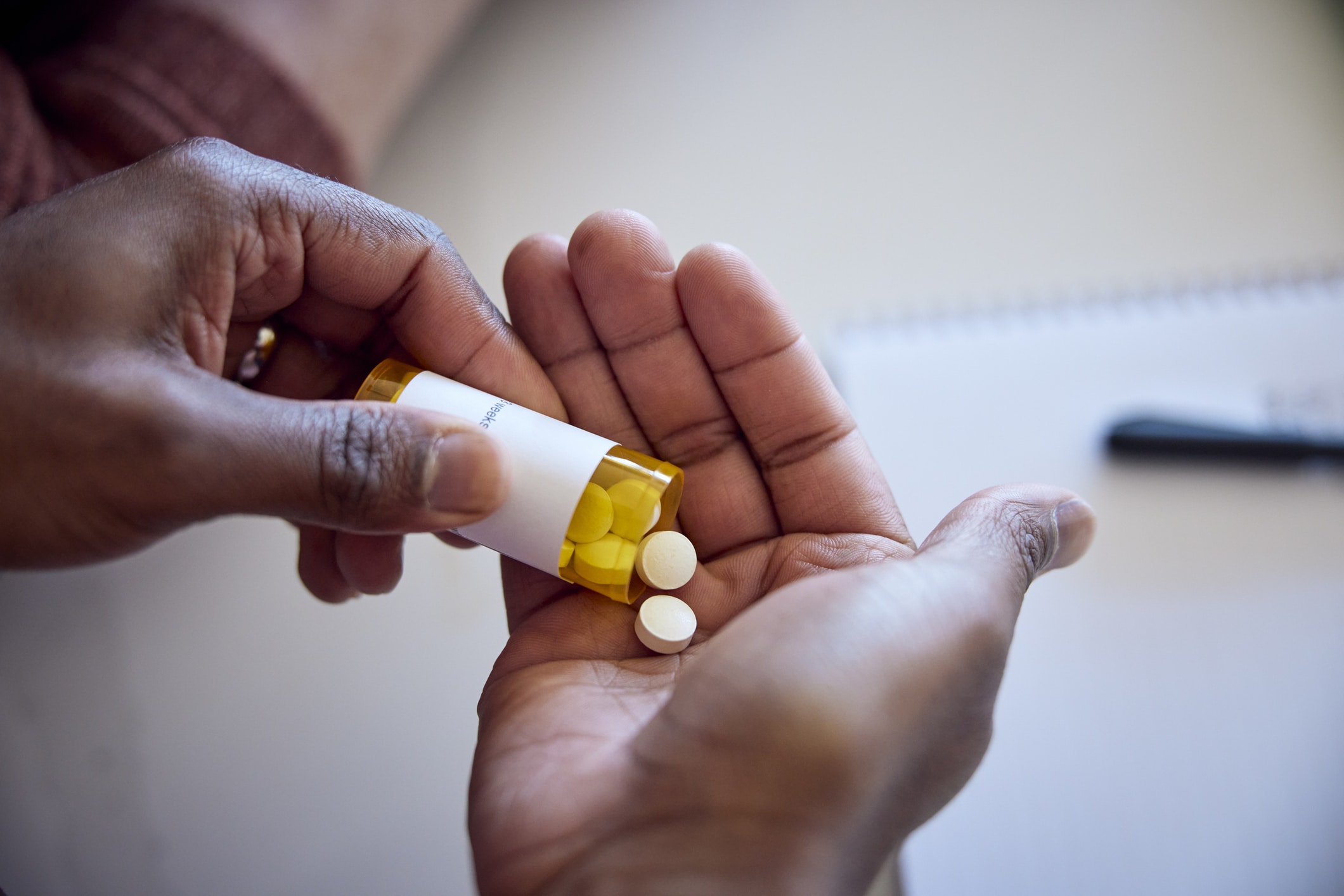What You Need to Know About Bacterial Infections: Causes, Symptoms & Treatment

Have you been recently diagnosed with bacterial infections? Or do you just want to know more about bacteria and what they can do to your body? Well, you’re in luck since this page discusses bacterial infections’ explanation, the types, causes, symptoms, treatment, and prevention of bacterial infections.
Bacterial infections are pretty common since the diseases are caused in more ways than one. You can get it when you touch things in public places, like an elevator button, or when a tick bites you. Are you interested in learning more about bacterial infections? Then continue reading to learn more!
Table of Contents
What Are Bacterial Infections?
It’s incredible (but also quite annoying) that just a single-celled organism can multiply or release toxins in your body, causing you to get bacterial infections. These infections affect your brain, blood, skin, lungs, and other body parts.
The most common bacterial diseases are UTIs, ear or sinus infections, food poisoning, STIs, etc. These bacterial infections are treated with antibiotics. Medicines like Bactrim, a combination sulfonamide antibiotic, treat bacterial infections. The Bactrim Pricing depends on utilizing coupons and discounts to lessen the cost.
However, the retail price for the medicine averages $15.00. However, if you utilize discount cards from BuzzRx, which are free of charge, you may pay an amount of under $10.00. You can use this card at any participating pharmacy like CVS, Walmart, Walgreens, Kroger, and many more!
Harmful bacteria can cause different types of infections. The disease you get depends on your exposure and what part of your body is infected. The following are some of the most common types of bacterial infections today:
● Most urinary tract infections (UTIs) like E.coli
● Some sexually transmitted infections (STIs) like Chlamydia
● Food poisonings (gastroenteritis) like Salmonella and Campylobacter infections
● Bacterial pneumonia
● Some ear, skin, or sinus infections like boils, cellulitis, and impetigo
What Causes Bacterial Infections?
Bacterial infections occur when the bacteria enter your body. As mentioned above, single-celled bacteria would increase in number and spread diseases in your body, which causes an immune reaction.
● The bacteria can enter your body using the following:
● Airborne or through droplets
● Vehicular (contaminated water or food)
● Vector (tick, flea, or mosquito bite)
● Through direct or indirect contact
Symptoms of Bacterial Infections
The symptoms would also vary as there are different types of bacterial infections. However, fever is the main symptom of all bacterial infections except skin infections. Instead, skin infections would manifest in pain or redness on your skin. The following are other most common symptoms of bacterial infections:
● Chills
● Headache
● Fatigue (tiredness)
● Fever
How To Treat These Infections
Are you worried about your bacterial infection? Don’t fret since bacterial infections usually last for days to weeks. It may even go away without antibiotics. Be sure to consult your physician about your best course of action and if you can heal without needing medicine. However, you may get prescribed antibiotics if your body can’t fight off the bacterial infection.
The following are ways to treat these infections:
Antibiotics
The antibiotics prescribed to you would depend on the type of bacteria you have. Thankfully, medicine on the market works on more than one type of bacteria, saving you the hassle.
How can you take these antibiotics? Well, you can opt to take them through intravenous therapy (IV), orally, topically, or eye or on the surface of your skin. Just follow the prescribed antibiotics’ instructions on how to take them. Consult with your physician about what kind of method you would prefer.
Are you experiencing any pain right now? If so, a healthcare provider would most likely prescribe pain or anti-inflammatory medication for this symptom. It helps ease the pain and any swelling caused by the bacterial infection.
As mentioned, the most common symptom is fever, so a physician would also recommend taking fever-reducing medication. Medicines like NSAIDs or non-steroidal anti-inflammatories can also reduce pain, fevers, and swelling.
For those with cough symptoms, a doctor may suggest anti-cough medications. Some patients may also experience dehydration and would need IV fluids.
Drainage
Bacterial infection patients who have an abscess may require surgery to treat it. If the abscess is superficial, it would be considered a simple procedure. However, a more extensive surgery would be done if it’s located deep within your body, e.g., intestines or brain.
How Can I Prevent It?
Most of these diseases are common, but preventing them from happening would be better. No matter how common a disease is, you can prevent it. The following are ways you can protect yourself from the diseases mentioned above:
● Get vaccinated.
● Practice safe sex: Use a condom and get yourself and your partner checked out for STDs.
● Follow the food safety rules: Treat your food carefully. These items would go into your mouth and body, so you must cook each meal properly.
● Practice good hygiene: This is the most essential thing you can do to protect yourself, especially after the recent COVID-19 pandemic. Wash your hands and cover your mouth whenever you cough. If you can’t wash your hands, especially before eating, consider using alcohol to disinfect your hands.
Final Thoughts
Bacterial infections are common, but we have antibiotics, IV fluids, pain medications, and other drugs to help battle the symptoms. The global healthcare system has improved since ancient times, and we can now get better after a few days or weeks. So, if you have a bacterial infection, don’t lose hope; just listen to your healthcare providers!

 Finding the Best Teen Mental Health Facility in Phoenix
Finding the Best Teen Mental Health Facility in Phoenix  Unleashing Your Ultimate Performance: How Dr. Sue’s Sport Hypnotherapy Transforms the Game
Unleashing Your Ultimate Performance: How Dr. Sue’s Sport Hypnotherapy Transforms the Game  Get Help for Your Teen: Understanding the Importance of Teen Mental Health Therapy
Get Help for Your Teen: Understanding the Importance of Teen Mental Health Therapy  Semaglutide Pills for Diabetic Patients and its role in Weight Management
Semaglutide Pills for Diabetic Patients and its role in Weight Management  How and When Must Drug Companies Participate in the 340B Program?
How and When Must Drug Companies Participate in the 340B Program?  Top 6 Tips to Support a Loved One Who Has Been a Victim of Camp Lejeune Contamination
Top 6 Tips to Support a Loved One Who Has Been a Victim of Camp Lejeune Contamination  How Acupuncture Can Help Support Fertility and Wellbeing
How Acupuncture Can Help Support Fertility and Wellbeing  Sciatica Relief Options on Long Island: A Comprehensive Guide
Sciatica Relief Options on Long Island: A Comprehensive Guide  Step-by-Step Guide to Cloning an Appealing Voice with AI for Promo Videos
Step-by-Step Guide to Cloning an Appealing Voice with AI for Promo Videos  How to Create Stunning Images for Social Media Promotion: A Guide for Small Businesses
How to Create Stunning Images for Social Media Promotion: A Guide for Small Businesses